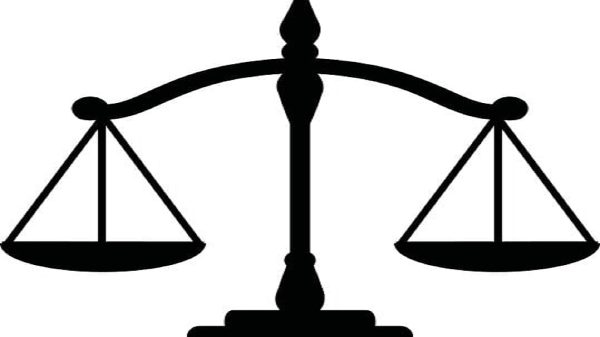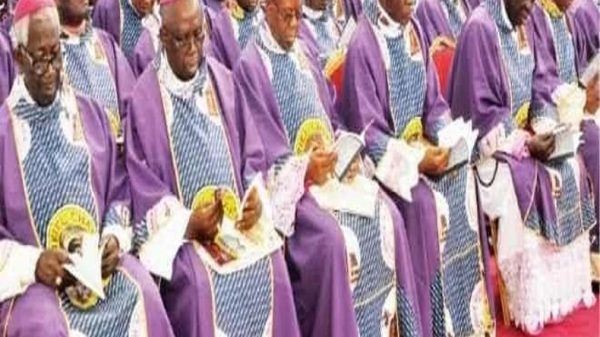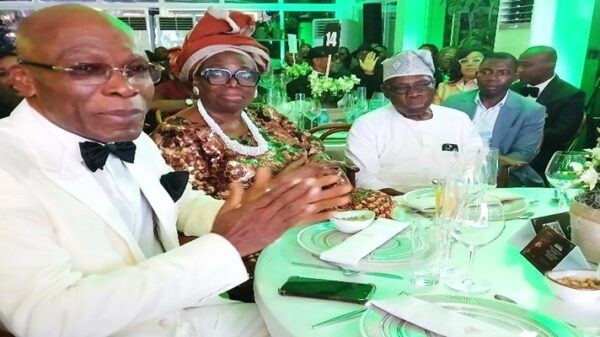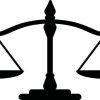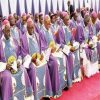Judge Chukwujekwu Aneke of the Federal High Court in Lagos, on Friday, acquitted Senator Peter Nwaoboshi, accused of laundering 322 million naira.
Aneke said the prosecution case collapsed when it failed to call essential witnesses and provide concrete evidence to establish its claims.
The Nigerian News Agency (NAN) reports that Nwaoboshi, who represents Delta North on the Peoples Democratic Party platform, was arrested in 2018 by the Economic and Financial Crimes Commission (EFCC) on two counts money laundering.
Two companies, Golden Touch Construction Project Ltd. and Suiming Electrical Ltd., were indicted along with the senator.
He had pleaded not guilty and was released on bail.
The trial began before Judge Mohammed Idris on April 25, 2015, but after Idris was elevated to the Court of Appeal in June 2018, the case resumed on October 5, 2018 before Aneke.
The EFCC said Nwaoboshi committed the offenses in May and June 2014, in Lagos state.
He is said to have acquired a property classified as Guinea House on Marine Road in Apapa, Lagos, for the sum of N805 million.
The prosecution said 322 million naira of the purchase sum was part of the proceeds of an illegal act.
He said the money was transferred to the vendors on the orders of Suiming Electrical Ltd.
The prosecution filed their written addresses on January 21, 2021, while the defendants filed their written addresses on February 3 and February 9, 2021, respectively.
In delivering his judgment on Friday, Aneke first read the charges on which the defendants have been charged, then reviewed the evidence presented by witnesses, as well as the essential ingredients of the charges.
He considered that the testimony of the First Prosecution Witness (PW1), Prince Kpokpogri, was based on a call from an anonymous person, adding that he did not produce the documents provided to him by the anonymous person who had not been called as a witness to testify.
The judge ruled that the testimony of the first prosecution witness could therefore only be characterized as hearsay.
“Pw 2, Abubakar, works with Nexim Bank and the summary of his evidence was that the sum of 1.2 billion naira was awarded to the third defendant on his claim for a period of five years with interest.
“That the principal which is 1.2 billion Naira has been repaid, while over 700 million Naira in interest has been paid and only about 24 million Naira is in arrears on said loan.
“He said that at the time of his testimony, the term of the loan had not expired.
“The conclusion of his testimony was that the loan had been properly and properly granted to the defendant; he handed Exhibit A1 to A 27 ”, declared the judge.
He concluded that PW2’s evidence had high probative value.
Aneke ruled that a computer-generated account statement that PW3 sought to present in evidence, Eyitayo Moigbemtere, was rejected on the grounds that it did not comply with section 84 of the Evidence Act.
He noted that the court also rejected the admissibility of a third defendant’s account opening document which was requested by PW3.
“The court ruled that although PW3’s evidence was not contested, the inadmissibility of the opening document made it impossible to prove the prosecution.
“PW4, Mc Davies Stanley, an EFCC investigator, investigated the case upon receipt of a petition written by PW1.
“All he did was write letters to several organizations and agencies, and after getting their responses, he analyzed them and wrote a report which he submitted to the legal department of the EFCC.
“He presented some of the responses he received as Exhibits E, E1, F, F1, G and H,” the judge said.
He ruled that Exhibit G, an out-of-court statement by the first defendant, was unnecessary and could not be produced in court.
“In criminal law, an out-of-court statement from a person accused of a crime can be used as a confession if he admits having committed the crime.
“An out-of-court statement which does not constitute an admission can never be considered proof of a person accused of a crime,” he said.
He said that none of the elements of the charges had been proven by the prosecution.
“How to prove them when the third defendant’s report has been produced and rejected in evidence?” ” He asked.
The court ruled that the rejection of said statement meant that said 322 million naira could not be proven.
He adds that the bank in question was not called as a witness.
The judge ruled that it was the third defendant’s account statement that would show that, apart from Nexim Bank’s 1.2 billion naira loan, there was no other money or enough money in it. the account of the third defendant to pay the sum of N322 million to prove that the N322 million was paid from N1.2 billion and not from any other money belonging to the third defendant.
Aneke therefore considered that none of the elements of the charge had been proven.
He said that this failure collapsed the prosecution case.
“In count two, the ingredients of count one must first be proven before the accused can be convicted.
“The result is that the prosecution case is dismissed and all the accused are released and acquitted,” he said.
NAN reports that during the trial, the prosecution called four witnesses while the defense called no witnesses but based their evidence on the prosecution’s ability to establish the allegations. (NAN)
![]()

